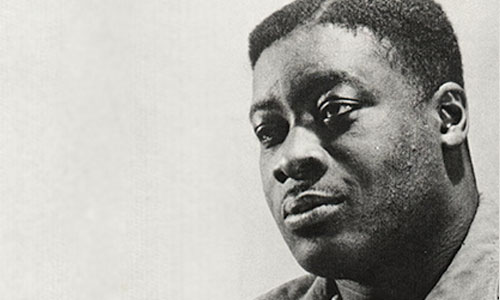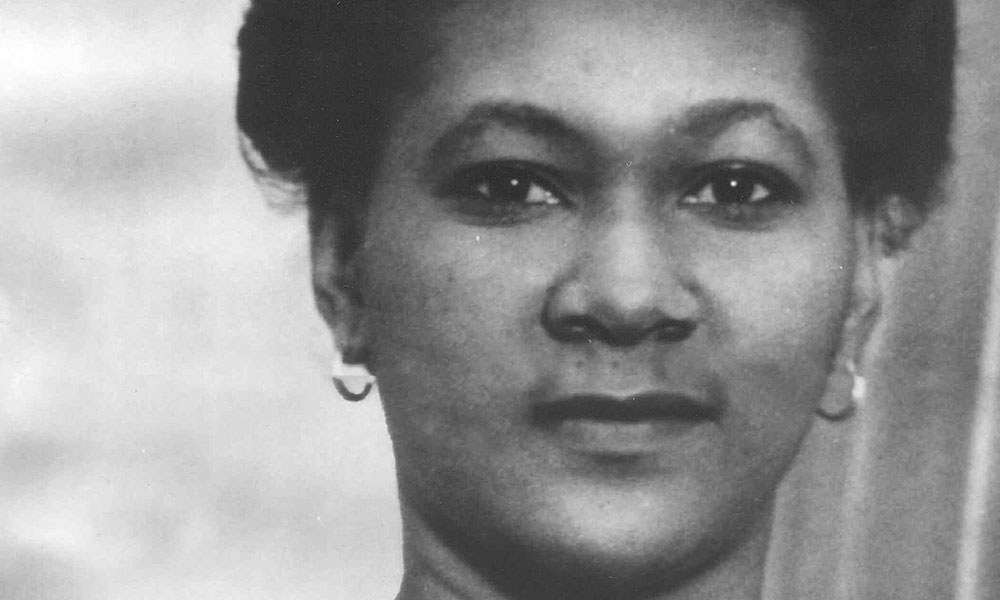
Stanley Theodor Sebastian was born on the 28 December 1920. He was the son of and Christobel Richardson and James Matthew Sebastian. He grew up in Newtown in his mother’s household. At an early age he learnt how to move in various social circles. From his mother he acquired a friendliness towards all with whom he came in contact. His father, on the other hand, challenged him to be outstanding.
Young Stanley received his foundation in education at the Basseterre Boys’ School then under the guiding hand of the head master, Samuel Beach. It was also here that he first met his brother Cuthbert. The two were to become lifelong friends who admired and stood up for each other. In 1936, he sat the first year Pupil Teacher Examinations. He was, then serving as a pupil teacher at Palmetto Point and later advanced to the position of Assistant teacher. An acquaintance of his remembered him riding to school on his bicycle dressed in short pants and jacket with a split in its tail which was then quite out of fashion. The sniggers of passers-by at his unconventional clothing did not bother the young man. He was not going to be tied down by rules.
Following a course in Public Health, Sebastian was employed as an inspector assigned to Gingerland, Nevis. He gradually gained experience in the fields of Sanitation and Water by working closely with the men in charge. Sebastian developed an interest in the specialised field of Public Health Engineering. His studies in this area took him which took him to Trinidad and Puerto Rico. Later, he was awarded a scholarship to pursue engineering at the University of Manchester where he won a bronze medal for his academic performance. In 1949, he obtained his commission as a surveyor for the presidency and in 1951 he held the appointment of Field Technician in the Public Health.
In 1959, the World Health Organization awarded him a fellowship which he used to obtain a Masters of Science degree from John Hopkins University in the United States. This enabled him to join such distinguished professional organisations as the Institute of Public Health Engineers, the Institute of Water Engineers, The Royal Society of Health and the American Water Works Association.
Stanley Sebastian returned home as a Public Health Engineer. He found that a great deal of work was waiting to be completed but often had to deal with very basic problems. Public health nurses found in him a champion who made it possible for them to carry out their work by providing them with basic necessities such as tables and chairs for clinics.
It was during a course in Trinidad that he met Medea. She and his sister Rupertha had become friends while undergoing teachers’ training but she had left education and entered upon a career in surveying. They became good friends and finally lifelong partners in marriage.
In St. Kitts Sebastian put his qualifications to good use. As a civil servant he became known for being straight forward, energetic, and loyal. He had a great sense of humour and a tenacity for getting the job done. In 1956 he was called upon to take up the post of Water Engineer as nobody else could be found to fill the vacancy. This meant that Sebastian had to be released from the Health Department. It was within this field that he found his crowning achievement - the laying of the water main leading from Wingfield River to Basseterre. At the time this allowed one million gallons of water per day to reach town effectively eliminating water shortages except in serious drought conditions. He also had to visit Anguilla on a number of occasions to deal with the water problems in that island. The men he worked with found him to be unassuming, willing to give advice, and down-to-earth both in manner and speech. Sebastian insisted that the department worked as a team and won the admiration of all. Later he was assigned to the Frigate Bay project as Development Engineer.
Sebastian’s interests, spanned a wider spectrum of intellectual and cultural involvements. His professional career must have been, in part at least, responsible for his interest in fossils. But Stanley Sebastian also had a love of music, in particular he enjoyed the Negro spirituals. He taught himself the piano, sang in the Moravian Choir and became an authority on ballroom dancing. At the first St. Kitts Arts Festival of 1964 he organised a group of Morris Dancers.
Stanley Sebastian served as a member of the Board of Directors of the St. Kitts Public Library, was president of the Mutual Improvement Society and took an active interest in sports giving a great deal of support to the Netball Club. From 1962 he was a Director of the St. Kitts Workers’ League
Stanley Sebastian died on the 18th June 1969.




